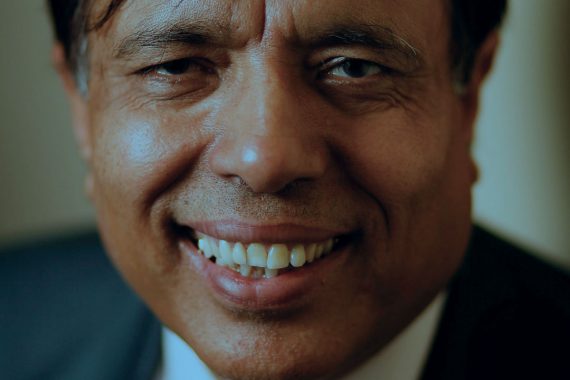Sustainability and transformation plans (STPs) being rolled over across England are set to reshape the general practice over the coming years. Would that be the end for general practice, or the dawn of a new era?
It appears another reorganisation is inevitable
STPs as described by Mark Porter, chair of the BMA council, are an ‘aspiration’ and the BMA has found that £9.5bn will be required to launch them. Essentially, they are driven by financial accountability, based on an unrealistic optimism about future savings. NHS England seems to be in a hurry, running at least a five-year project in a year or two, with non-existent consultation with professionals and public.
It’s a marriage of two debts (health and social care) to deliver cuts, rationing and opening doors for further privatisation of the NHS. To respond to a funding crisis by reorganisation is as at best foolhardy, at worst as grossly negligent, it’s rearranging the deck chairs on the Titanic. The speed at which changes are being made will not allow any evaluation of their effects or, indeed, for them to be implemented properly. They will, however, provide a smokescreen to hide rationing of healthcare and dismantling the proven model of traditional general practice from public view.
Most of the meetings I go to, I hear the CEOs starting their speech by talking of integration of health and social care as the ultimate panacea to solve the crisis in the NHS. They start emphasising the need to balance the books and to meet specific targets such as A&E access times. We need to move beyond the financial challenge to reach a point whereby general practice gains from this experiment rather than lose everything been so dear to profession and public for decades.
The meaningless ‘top-down re-organisation’ in the Health and Social Care Act by Andrew Lansley was a health policy disaster and has led to endless workarounds to achieve progress. History is repeating itself The STPs are more fiction than reality. This is essentially a project by NHS England to supersede Mr Lansley’s act.
Why won’t STPs work? Because every small change has to be negotiated and agreed in detail with all stakeholders before it can get the green light. The CCG, local authority, and NHS FT can veto any change. That kicks the entire project in long green grass. Any political interference to gain short-term votes can block change. Time after time, local managers are overruled by senior NHS staff to avoid political embarrassment.
And even if changes could be agreed locally, the funds and resources needed to deliver effective change is not available. So-called transformation money to fund STPs is spent plugging existing deficits. The iron rule of public service seems to have been lost: that you can spend the same money only once. NHS officials have come under intense pressure to produce plans that confidently predict the undeliverable, and most have bowed to that pressure.
It appears another reorganisation is inevitable (already happening with the impending demise of the CCGs). Changing health economies such as devolution in Manchester, integrated care organisations (ICOs) and the development of accountable care organisations (ACOs) is happening fast. My fear is this experiment too could end in tears like Lansley’s act. And in the process traditional general practice will end for good.
Dr Kailash Chand OBE is a retired GP and former deputy chair of BMA council. You can follow him on Twitter @kailashchandobe
This blog is part of our ‘Great GP Debate’ season. If you would like to write a blog on how you see the future of general practice, then please email the Editor at editor@pulsetoday.co.uk.















